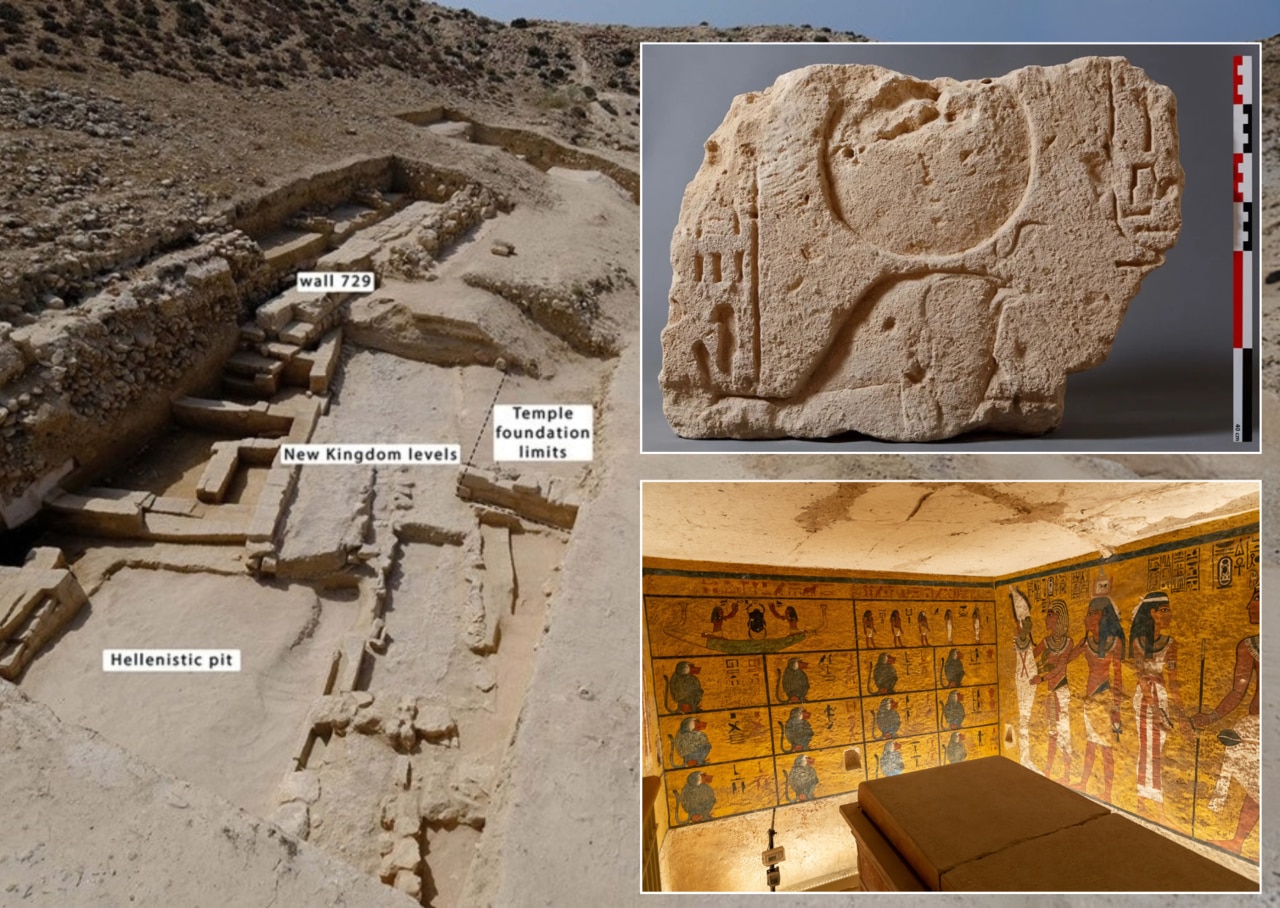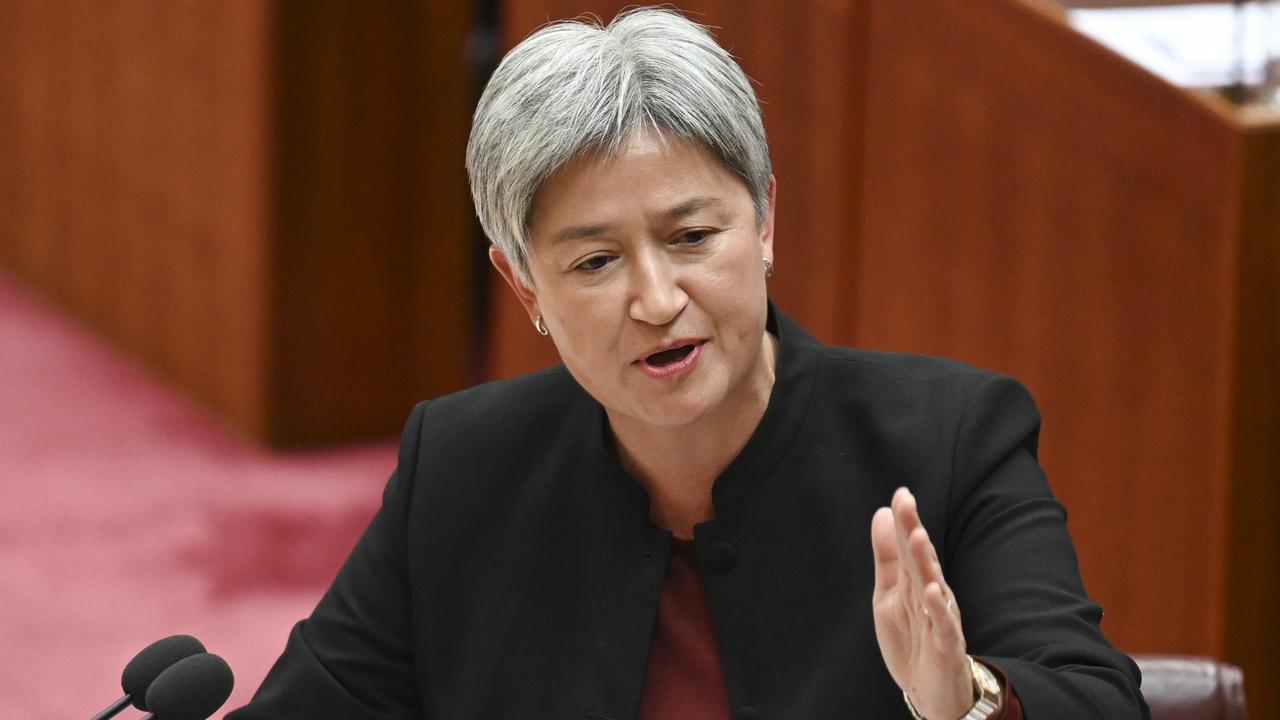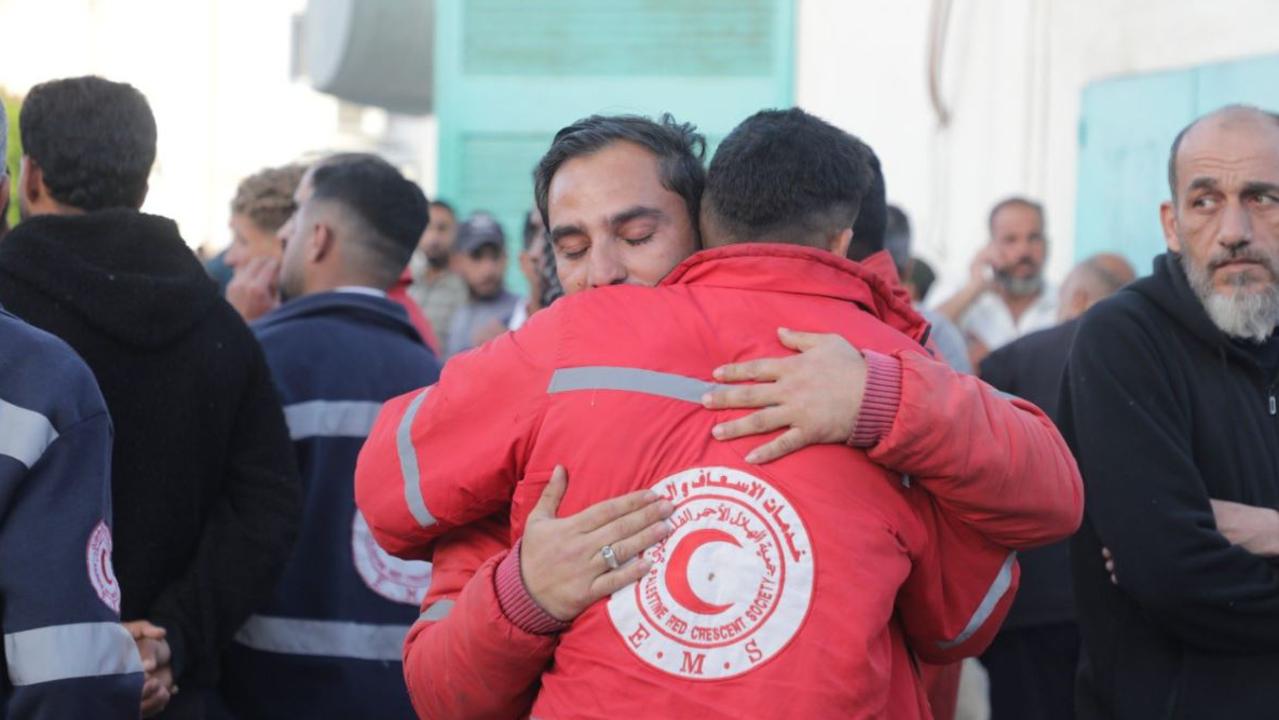‘Not the end’: Israel warns of more ‘surprising blows’ after Hezbollah launches wide-scale attack
Israel has warned of more “surprising blows” against Hezbollah as fears grow of a full-scale war in the Middle East.
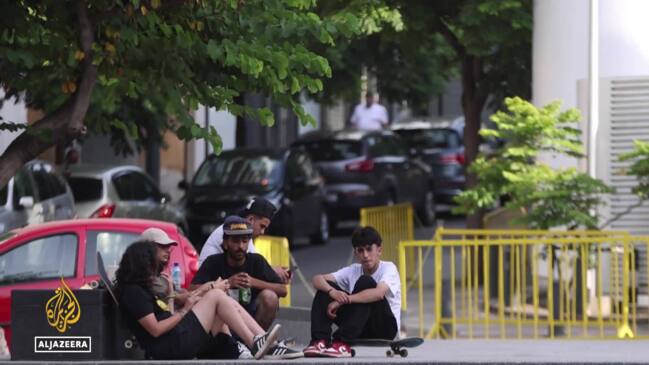
Israel’s Prime Minister has warned of more “surprising blows” after the country’s military claimed to have thwarted a large-scale attack by Lebanese militant group Hezbollah.
Hezbollah said Sunday’s attack with rockets and drones on Israeli positions was an “initial response” to a top commander’s killing, and insisted the onslaught had been successful.
“The number of Katyusha rockets launched until now is more than 320 … towards enemy positions,” Hezbollah said in a statement on Sunday, adding it had targeted 11 Israeli bases and barracks, including on the annexed Golan Heights.
The group’s leader Hassan Nasrallah named the “main target” as the Glilot military intelligence base near Tel Aviv, which Israeli media reported is home to the headquarters of the Mossad spy agency.
Israel’s military said there were “no hits” on the base.
A secondary target, said Nasrallah, was Ein Shemer, a military airport used by Israeli drones.
It had earlier also said it “began an air attack with a large number of drones” targeting deep into Israel, while fighters had also targeted “a number of enemy positions and barracks and Iron Dome platforms … with a large number of rockets”.
The “military operations will take some time to complete”, it said.
The Iran-backed movement has exchanged regular fire with Israel in support of its ally Hamas since the Palestinian militant group’s October 7 attack on Israel sparked the Gaza war.
But Sunday’s strikes were perhaps the biggest exchange of fire in 10 months and have triggered fears of a broader conflagration in the Middle East.

Those fears grew after Iran and Hezbollah vowed revenge for the killing last month, blamed on Israel, of Hamas leader Ismail Haniyeh in Tehran, and an Israeli strike that killed Fuad Shukr, a top Hezbollah commander, in south Beirut.
The Lebanese movement said its attack came in an “initial response” to Shukr’s killing.
The “first phase has ended with total success”, the group said, adding that this phase sought to “target Israeli barracks and positions to facilitate the passage of attack drones towards targets” deep inside Israel.
Hezbollah also said it was “in a high state of readiness”, adding that “if civilians are harmed, there will be very severe punishment”.
Lebanon’s official National News Agency reported Israeli strikes on a large number of locations in south Lebanon.
Meanwhile, Palestinian Islamist movement Hamas hailed the strikes by Lebanon’s Hezbollah against Israel, calling it a “strong and focused response”.
“We emphasise that this strong and focused response, which struck deep inside the Zionist entity, is a slap in the face” for the Israeli government, Hamas said in a statement after Hezbollah said it launched a large-scale operation using rockets and drones
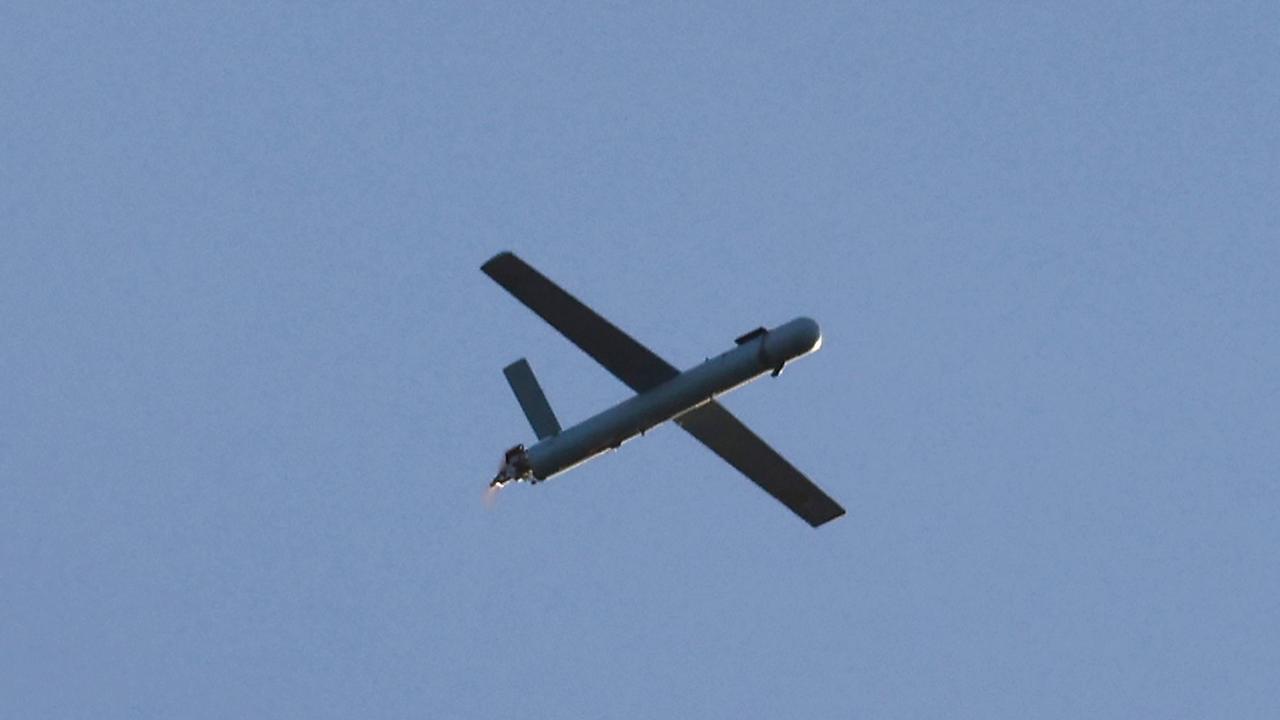
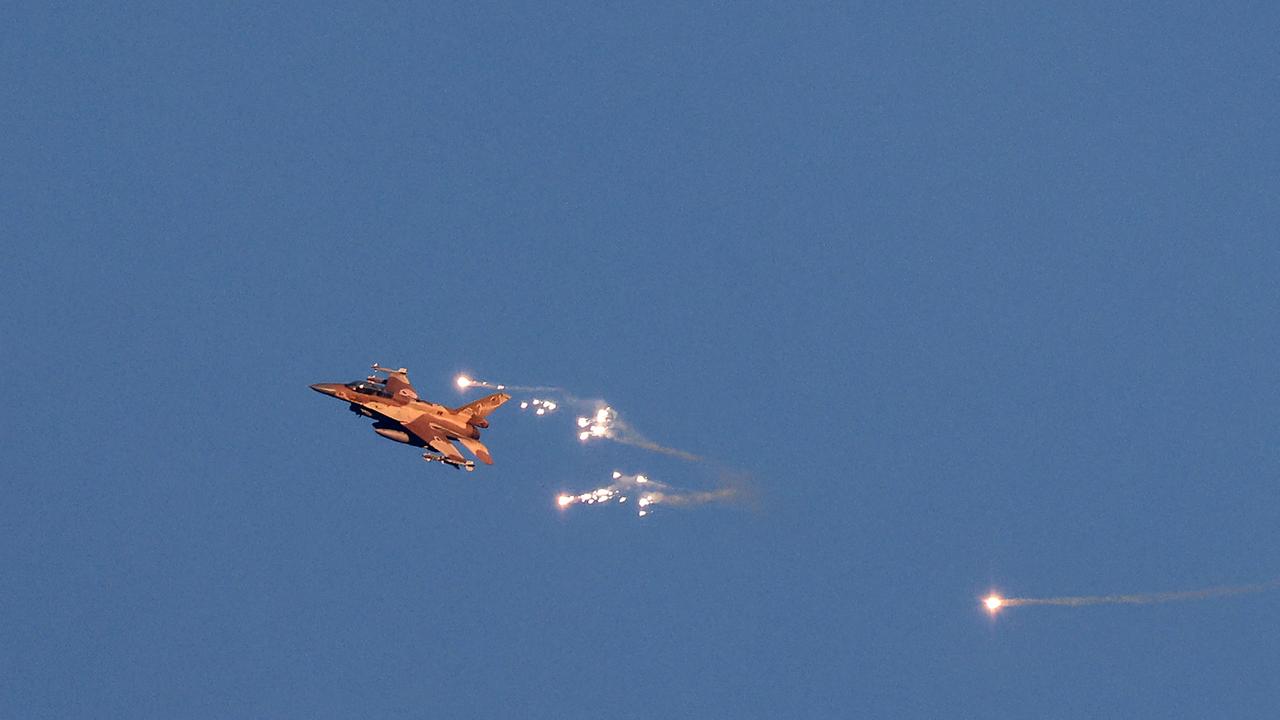
Israel striking Lebanon
The Israeli military launched pre-emptive strikes in Lebanon on Sunday after detecting preparations for “large-scale” attacks by Hezbollah, saying it destroyed “thousands” of rocket launchers and thwarted a major attack.
The military also warned Israelis to expect incoming missiles and drones launched by Hezbollah, with the government declaring a 48-hour state of emergency.
Hezbollah denied that thousands of launchers had been destroyed or that Israel had thwarted a larger attack. It said its own operation “was completed and accomplished”.
Israeli Prime Minister Benjamin Netanyahu told his cabinet the strikes were “not the final word” in the campaign against Hezbollah.
“What happened today is not the end of the story,” Mr Netanyahu said at a government meeting in Tel Aviv on Sunday morning.
“We instructed the IDF to carry out a powerful pre-emptive strike to remove the threat. The IDF destroyed thousands of short-range rockets, and they were all intended to harm our citizens and our forces in Galilee. In addition, the IDF intercepted all the UAVs that Hezbollah launched for a strategic purpose in the centre of the country. We are hitting Hezbollah with surprising blows. Three weeks ago, we eliminated his chief of staff, and today, we foiled his attack plan.”
The Israeli military said in a statement that its jets were striking targets in Lebanon “that posed an imminent threat” to Israelis.
“From right next to the homes of Lebanese civilians in the south of Lebanon, we can see that Hezbollah is preparing to launch an extensive attack on Israel, while endangering the Lebanese civilians,” military spokesman Daniel Hagari said in a video statement released at the same time.
He urged civilians “to move out of harm’s way”.
“Hezbollah’s ongoing aggression risks dragging the people of Lebanon, the people of Israel, and the whole region into a wider escalation,” Hagari said.

In a message addressed to the residents of southern Lebanon early Sunday morning, the Israeli military said: “We are monitoring Hezbollah’s preparations to carry out large-scale attacks on Israeli territory near your homes. You are in danger. We are attacking and eliminating Hezbollah threats.
“Anyone who is near areas where Hezbollah operates should leave immediately to protect themselves and their families,” the message posted on Telegram said.
Israeli Defence Minister Yoav Gallant announced a 48-hour nationwide state of emergency from 6am Sunday (local time).
His office said in a statement that he had briefed his US counterpart Lloyd Austin on the situation, adding the “defence establishment is following developments in Beirut”.
A US national security spokesman said President Joe Biden had directed US officials to “continuously” communicate with Israel, while the Pentagon said it was “postured to support” the defence of Israel and reaffirmed its “iron-clad commitment” to the country.
Secretary of Defense Lloyd Austin also spoke with Gallant.
“Secretary Austin reaffirmed the United States’ iron-clad commitment to Israel’s defence against any attacks by Iran and its regional partners and proxies,” a Pentagon spokesman said.
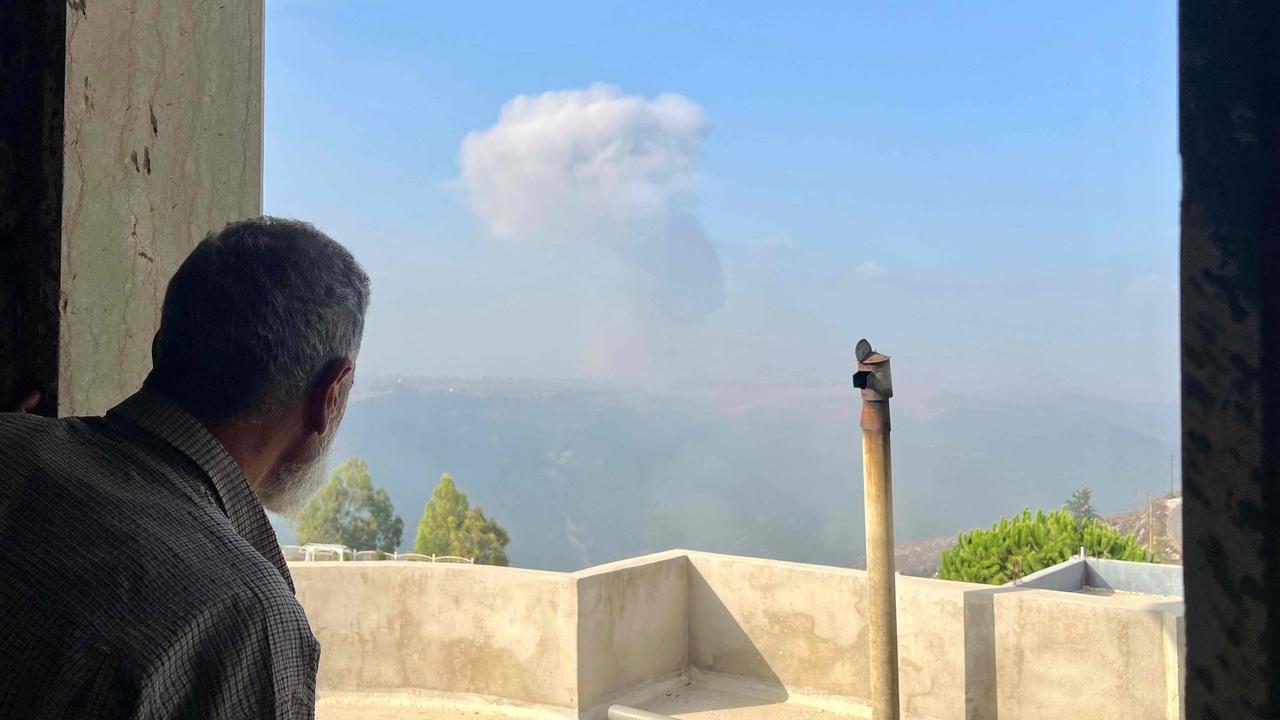
Reports of casualties
Lebanon’s health ministry said three people were killed in Israeli raids in the country’s south, after Israel launched strikes against Hezbollah, which announced a wide-scale attack on Israel.
An “Israeli drone strike on a car in the village of Khiam” killed one person, the health ministry said in a statement.
The Amal movement, a Hezbollah ally, later announced a fighter from Khiam had been killed.
The health ministry said that “the Israeli occupation attack on the village of Tiri” killed two people, without saying whether they were fighters or civilians.
It had earlier also reported two people including a Syrian man were wounded in “a series of Israeli raids” in the south.
Israel launched air strikes into Lebanon on Sunday, saying it had thwarted a large-scale Hezbollah attack.
The cross-border violence since October has killed more than 600 people in Lebanon, mostly Hezbollah fighters but including at least 131 civilians, according to an AFP tally.
On the Israeli side, authorities have announced the deaths of at least 23 soldiers and 26 civilians, including in the annexed Golan Heights.
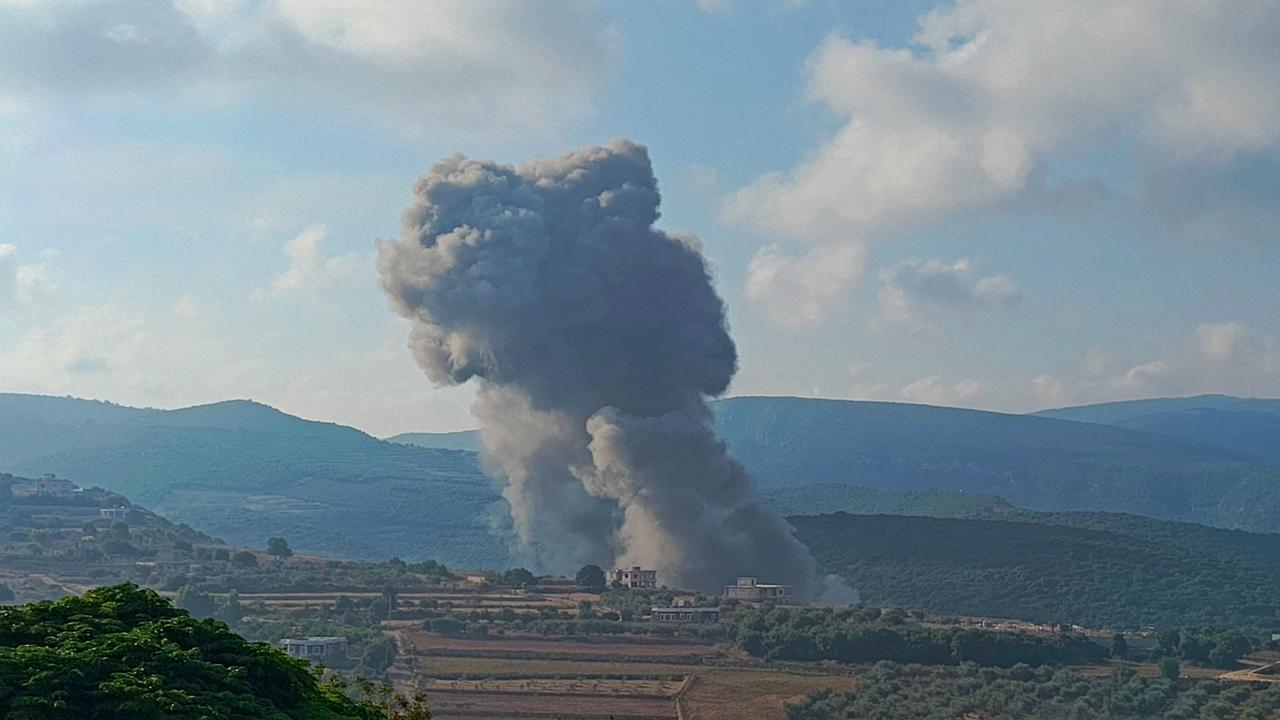
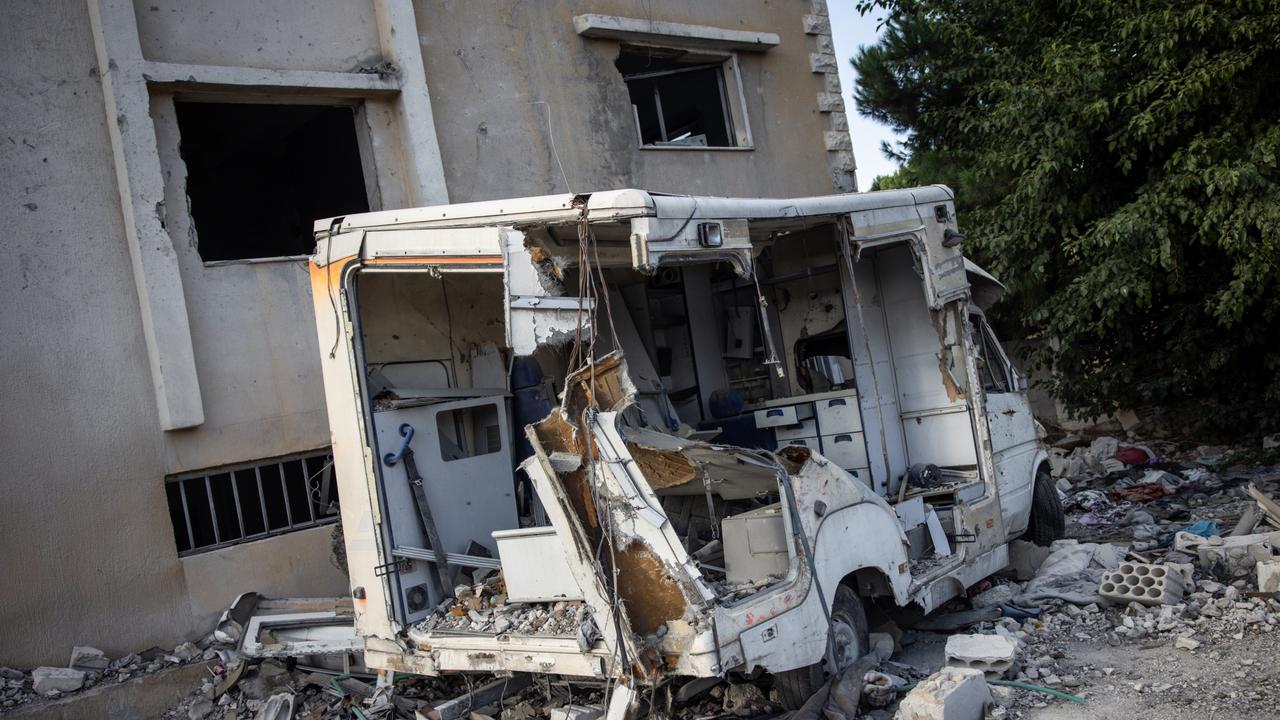
Flights impacted
Beirut airport was functioning on Sunday but many passengers were stuck as flights were cancelled or delayed, an AFP correspondent said, after Israel and Hezbollah announced broad strikes in an escalation of cross-border hostilities.
“We came at 4:30am for our flight at 8am but they told us it was cancelled,” said Elham Shukair, a passenger headed to the United States via Jordan.
Seated on her bag in the arrivals hall, she said she had booked another flight later Sunday with Lebanon’s Middle East Airlines in the hope of reaching Amman and making her onward connection.
On Sunday, other passengers sat on the floor in the arrivals hall as screens showed cancelled or delayed flights, while the arrivals area was largely empty.
“Our flight is still scheduled but it is delayed,” said Diala Hatoum, who was set to travel with her son on a Qatar Airways flight.
“We will see, we are waiting now,” she added.

Air France said it was suspending Beirut flights scheduled for Sunday and Monday, adding that the move could be extended depending on the situation in the Middle East.
Royal Jordanian Airlines announced the suspension of Beirut flights “due to the current situation”, and the UAE’s Etihad Airways said it had also cancelled its services to and from the Lebanese capital.
On Friday, German airline giant Lufthansa said it was extending a suspension of flights to Beirut until September 30.
Lebanon’s civil aviation authority emphasised Sunday that “the airport is functioning normally” despite some disruptions.
There is “no truth” to rumours that all flights have been cancelled, said a statement from the authority carried by the official National News Agency.
A number of airlines had already announced flight suspensions or cancellations to Beirut in recent weeks, with some later resuming services.
Earlier, Ben Gurion International Airport announced that flights were being delayed and diverted on Sunday morning, while the country’s emergency service group said it was raising its level of alert.
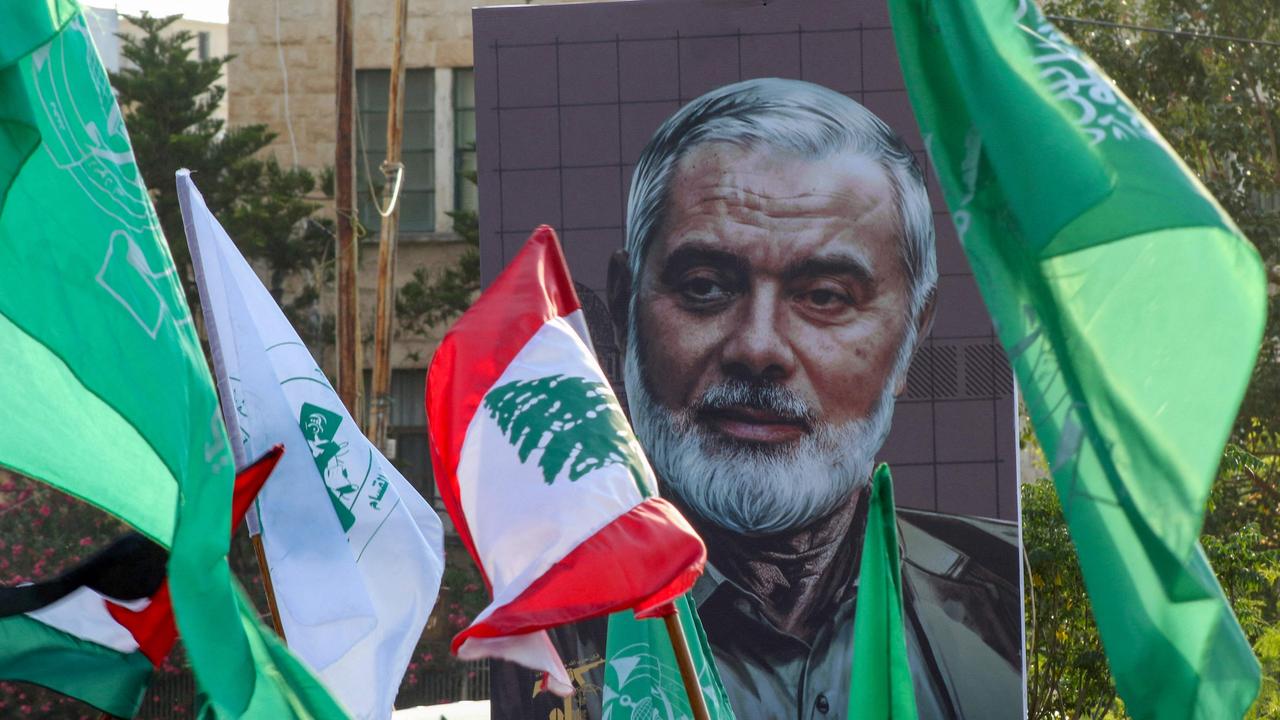
UN, Lebanon PM call for de-escalation
The United Nations and Lebanon’s prime minister have urged de-escalation after Israel struck Lebanon and Hezbollah said it launched attacks on Israeli positions, in a major escalation of cross-border hostilities.
The office of the UN special co-ordinator for Lebanon and the United Nations Interim Force in Lebanon (UNIFIL) “call on all to cease fire and refrain from further escalatory action”, a joint statement said, describing the latest developments as “worrying”.
“A return to the cessation of hostilities, followed by the implementation of UN Security Council resolution 1701, is the only sustainable way forward,” the statement added.
The resolution ended a 2006 conflict between Israel and Hezbollah and called for the Lebanese army and United Nations peacekeepers to be the only armed forces deployed in south Lebanon.
Lebanese Prime Minister Najib Mikati told ministers at an emergency meeting that he had been holding “a series of contacts with Lebanon’s friends to stop the escalation”.
“What is required is to stop the Israeli aggression first of all, and to apply Resolution 1701,” a statement from his office said.
Mikati also emphasised Lebanon’s “support for international efforts that could lead to a ceasefire in Gaza”, according to the statement.
Calls have mounted for the full implementation of the UN Resolution 1701 as a way of ending the current violence.
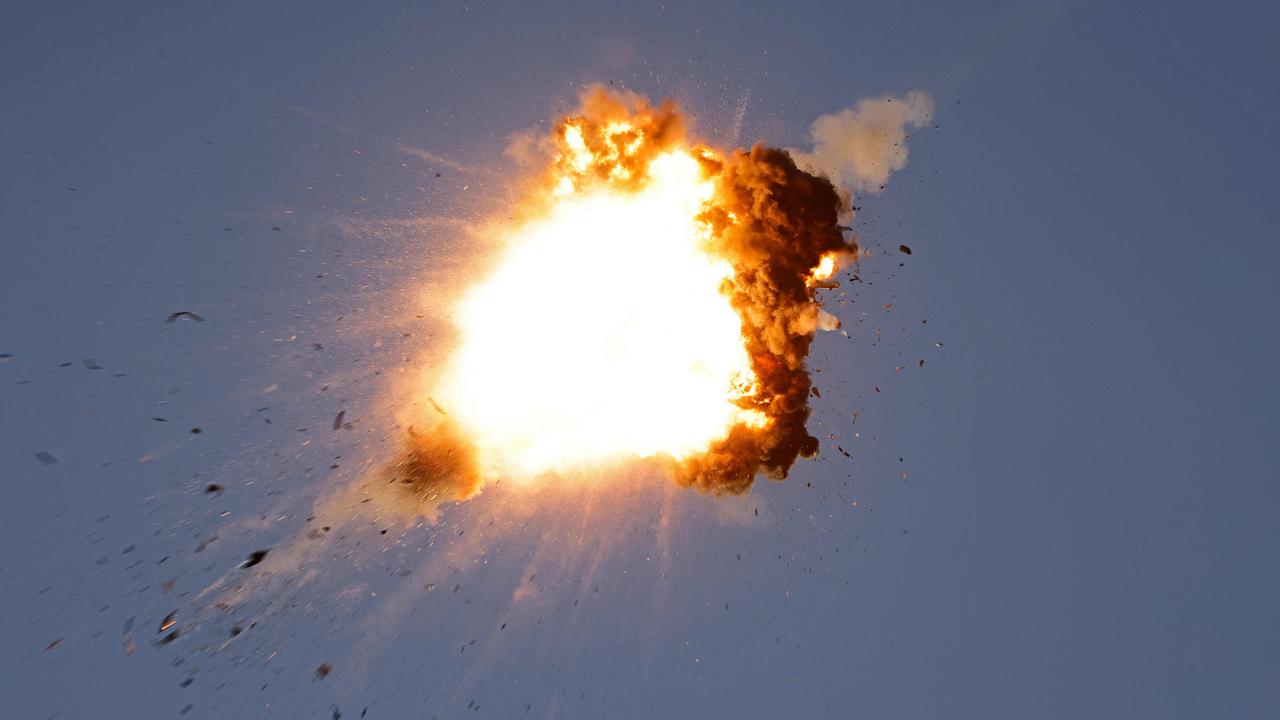
Death toll
The health ministry in Hamas-run Gaza said Sunday that at least 40,405 people have been killed in the war between Israel and Palestinian militants, now in its 11th month.
The toll includes 71 deaths in the previous 24 hours, according to ministry figures, which also list 93,468 people as wounded in the Gaza Strip since the war began when Hamas militants attacked Israel on October 7.
Yemen Huthis hail Hezbollah strikes
Yemen’s Iran-backed Huthi rebels praised attacks by Lebanon’s Hezbollah on Israel Sunday and renewed threats to launch their own assault in response to Israeli strikes on a port in Yemen.
“We congratulate Hezbollah and its Secretary-General on the great and courageous attack carried out by the resistance this morning against the Israeli enemy,” the Huthis said in a statement after Hezbollah said it had launched a large-scale attack with rockets and drones.
The Yemeni rebels said the “strong and effective response … confirms that the resistance is capable, strong and honest in its promise and threats.”
The Huthis pledged to launch their own attacks against Israel in response to July 20 strikes that targeted a rebel-run port in the coastal city of Hodeida.
“We reaffirm once again that the Yemeni response is definitely coming,” the statement said.
The strike on Hodeida came a day after the Huthis launched their first deadly strike on Israel — a drone attack in Tel Aviv that killed an Israeli civilian.
Israel’s response destroyed much of the port’s fuel storage capacity and killed at least nine people, according to the rebels.
The Huthis are fighting Israel as part of Iran’s so-called “axis of resistance”, which includes militant groups in Iraq, Syria and Lebanon.
Since November, the Yemeni rebels have launched a flurry of missile and drone strikes on Israel-linked shipping in the Gulf of Aden and the Red Sea.
They say the campaign that has disrupted maritime traffic in the key global trade route is intended to signal solidarity with Palestinians amid the war in the Gaza Strip.



